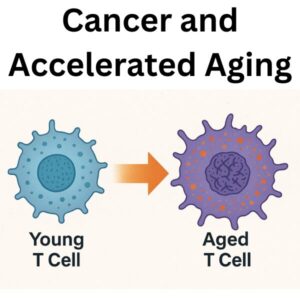A study published online in June 2025 in Cancer Discovery reveals that **T-cell–dependent tumor regression** is a key mechanism underlying the efficacy of KRAS G12D inhibitors in pancreatic ductal adenocarcinoma (PDAC).
KRAS G12D is a major oncogenic driver in PDAC, and several KRAS G12D inhibitors are currently in development. In this study, the authors demonstrated that although KRAS G12D inhibition induces tumor shrinkage, durable responses require functional CD8+ T-cell activity, as shown in mouse models.
Furthermore, when T-cell responses are insufficient, tumors can acquire immune escape mechanisms leading to drug resistance. The study highlights that **KRAS inhibition alone may not be sufficient**, and that rational combinations with immune-based therapies may be essential for achieving sustained clinical benefit.
This work offers important guidance for future treatment designs in the highly competitive KRAS-targeted therapeutic landscape.
Source: Cancer Discovery (June 2025, Online First), Article Link
【My Thoughts】
KRAS represents one of the final frontiers in pancreatic cancer therapy, but KRAS inhibition alone has shown limited durability. This study strongly suggests that combining KRAS inhibition with immune activation may provide a much-needed breakthrough for future treatment strategies.








